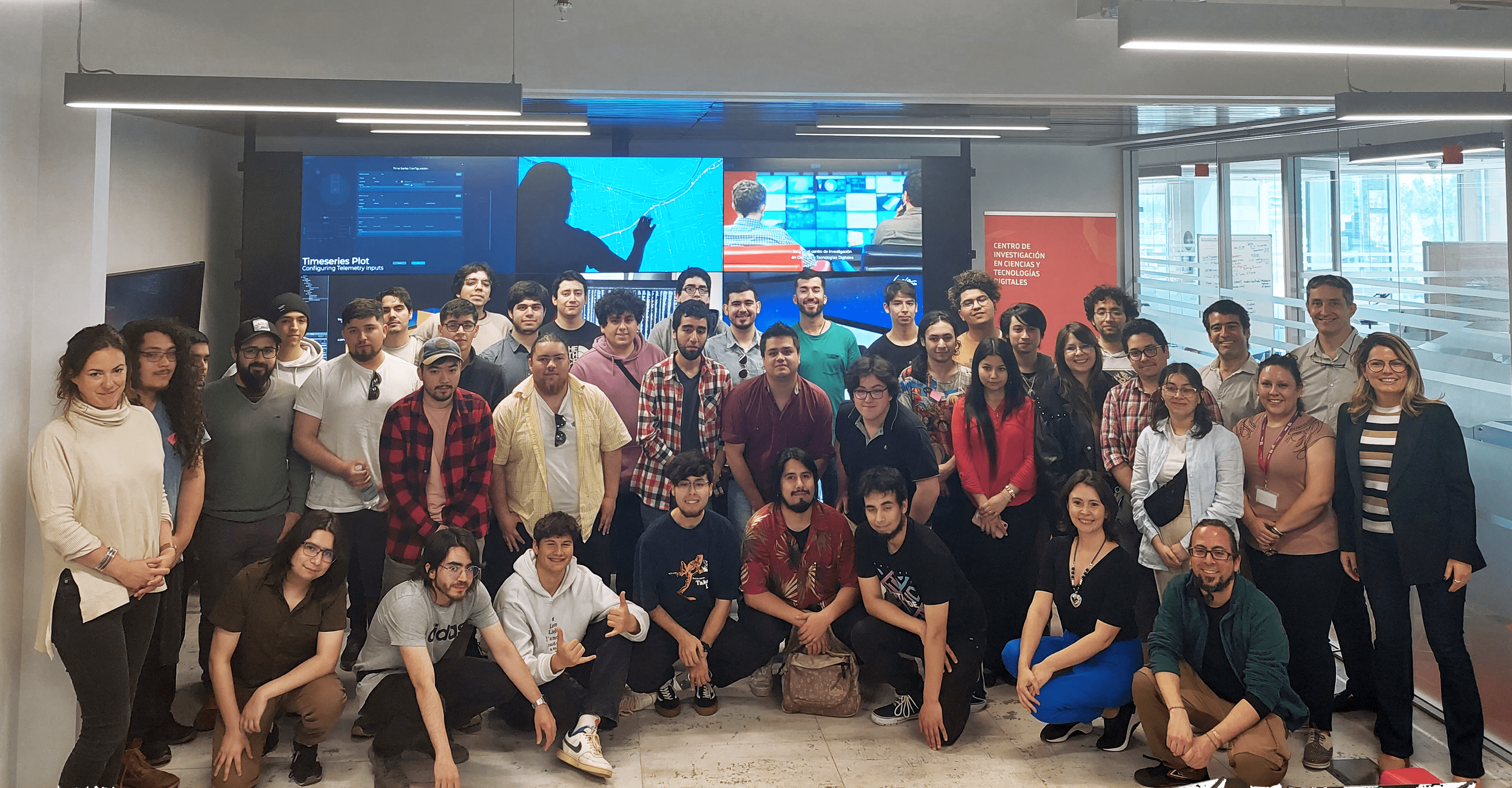
Students from Universidad Austral de Chile (UACH) are on a tour of Santiago to understand the reality of work in the field of technology and discover how the business and research centers world works.
Thus, 34 fifth-year students from the School of Civil Engineering in Computer Science, together with two of their professors, Tania Letelier, director and professor of the school, and Jorge Maturana, professor, visited Inria Chile, since the center and the university have signed a framework collaboration agreement since 2021.
The day began with the words of the director of Inria Chile, Nayat Sánchez Pi, who welcomed the group. Then, the director of alliances and international relations, Julia Allirot, presented Inria's ecosystems in Chile and what they have achieved during the 10 years they have been installed in the country. Within this, she introduced the "Summer Internship Program", which will allow 15 students from different Chilean universities to work at the research center for two to three months in various areas of computer science, applied mathematics, or software engineering.
Thanks to this program, they will be able to participate in the development of research projects and benefit from personalized supervision and insertion in Inria Chile's team of researchers and engineers. The call for applications for this opportunity will begin on November 10 and close on the 26th of the same month.
After announcing this opportunity, the center's researcher Luis Valenzuela gave a brief presentation on "Artificial intelligence and genomics" in which he addressed the OcéanIA project and its challenges. Afterward, Inria Chile UX designer Mia Elbo presented the L.O.V.E. (LSST Operator's Visualization Environment) project, which consists of the development of the user interface to operate the Vera C. Rubin Observatory, one of the four largest telescopes in the world.
As a final activity, students were divided into three groups to learn simultaneously through presentations on different projects and applications that are part of the center.
Rayner De Ruyt, software developer at Inria Chile, presented AirWARD, a project with the startup Drovid that develops artificial intelligence models for the automatic detection of fire and smoke sources from RGB and thermal cameras installed on unmanned aerial vehicles.
Two workers from the center, research and development engineer Andrew Berry and data scientist Hernan Lira, also presented the EMISTRAL project, which seeks to design a controller for autonomous sailboats by combining machine learning methods, reinforcement learning, transfer learning, domain adaptation, Internet of Things and modeling and simulation.
The third presentation was on FITS OW, a project that aims to provide astronomers (or other scientists interested in astronomy) with an efficient tool for collaborative research and analysis of images and for teaching. This was presented by Inria Chile's research and development engineer, Fernando del Campo.
Once the students had rotated through all the presentations, they completed this successful learning journey. For Inria Chile, the university represents an opportunity to strengthen its impact in the regions of southern Chile that includes both collaborative projects and joint applications as well as a search for talents.
Verbatim
The reception has always been super good, we have been coming to Inria for several years and the willingness they have to receive us, show us things and arouse our curiosity about problems and new technologies is noticeable.
Professor of the Institute of Informatics of the UACH
